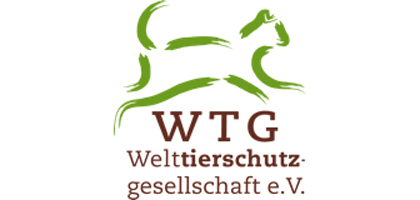ANAW & WELTTIERSCHUTZGESELLSCHAFT E.V (WTG) EMERGENCY RELIEF PROJECT OCTOBER 2023- NOVEMBER 2023
TITLE: ANTI-TETANUS VACCINATION CAMPAIGN IN BORI VILLAGE, MOYALE SUB-COUNTY.
 At the start of October 2023, ANAW received an emergency relief grant from WTG to carry out an emergency relief project titled “Anti-Tetanus Vaccination Campaign in Bori village, Moyale Sub-County.” This was after the Africa Network for Animal Welfare (ANAW) received a dire plea from the Moyale Sub-County Veterinary Office stating that at least 20 donkeys had died in a span of four weeks affecting twelve (12) households within the village. Key observable signs and symptoms were incoordination, staggering, inappetence, dullness, and eventually death. On clinical observation, most of the ones that succumbed had visible wounds on their skin. The tentative diagnosis pointed to tetanus also referred to as lockjaw, a disease caused by toxins (harmful substances) released by bacteria that have entered a wound or cut. The risk factors associated with the disease included poor harnessing techniques used by donkey users and handlers that predispose the donkeys to skin wounds that get exposed to the bacteria causing the disease.
At the start of October 2023, ANAW received an emergency relief grant from WTG to carry out an emergency relief project titled “Anti-Tetanus Vaccination Campaign in Bori village, Moyale Sub-County.” This was after the Africa Network for Animal Welfare (ANAW) received a dire plea from the Moyale Sub-County Veterinary Office stating that at least 20 donkeys had died in a span of four weeks affecting twelve (12) households within the village. Key observable signs and symptoms were incoordination, staggering, inappetence, dullness, and eventually death. On clinical observation, most of the ones that succumbed had visible wounds on their skin. The tentative diagnosis pointed to tetanus also referred to as lockjaw, a disease caused by toxins (harmful substances) released by bacteria that have entered a wound or cut. The risk factors associated with the disease included poor harnessing techniques used by donkey users and handlers that predispose the donkeys to skin wounds that get exposed to the bacteria causing the disease.
ANAW plans to work in collaboration with the Moyale Sub-Conty veterinary office which has been a critical implementing partner even in previous campaigns. The campaign aims to inoculate both healthy donkeys and those with possible deep penetrating wounds, bite wounds, wounds containing foreign bodies, wounds contaminated with soil or infected wounds, combine wound management for identified sick donkeys, and carry out an awareness and sensitization session with the community members and donkey users/handlers on disease identification, reporting, and prevention.
The expected outputs and outcomes include:
- Successful mass tetanus vaccination of 500 donkeys in Bori Village with the help of extensive publicity.
- . Proper wound management for identified donkeys with deep penetrating and infected wounds carried out successfully.
- Successful awareness and sensitization sessions with community members and donkey users/handlers.
